Upholding spirit of charity: Malaysian Muslims step up aid this Aidiladha as more seek help amid COVID-19
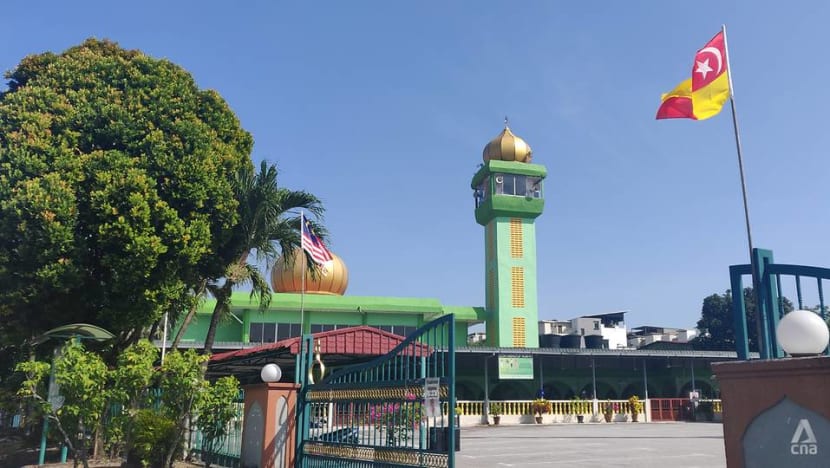
Al-Ma’muriah Mosque in Kampung Sungai Kayu Ara, Petaling Jaya, Selangor. (Photo: Vincent Tan)
KUALA LUMPUR: In previous years, Nadia Abu Bakar and her husband would sponsor a goat or contribute one-seventh of the cost of a cow as their sacrifice on Aidiladha.
But with the various forms of lockdown currently imposed in Malaysia, commemorating Aidiladha would be different this year for them, especially with Klang Valley being one of the COVID-19 hotspots.
“After the family celebration, we will be off to make some rounds in our neighbourhood and neighbouring residential areas, including the hardcore poor housing areas, to look for white flags and help replenish any food banks we come across,” Nadia, 38, told CNA.
The prolonged pandemic has caused economic losses to many, and in recent weeks, those needing help were encouraged to fly a white flag outside their house as a sign of SOS call.
READ: Desperate Malaysians fly white flags as a call for help to survive COVID-19 lockdown
Normally celebrated as a communal event pre-pandemic, a common practice during Aidiladha would be for Muslims to sponsor a goat or sheep, or a cow or even camel if wealth permitting, to be sacrificed in the compound of their local mosque.
According to religious practice, one portion is kept for the household who sponsors the sacrifice, while the rest will be donated to the poor and needy.
This year, however, most mosques in the Klang Valley are not conducting courtyard sacrifices due to the extended lockdown, and those few which are able to can only sacrifice a limited number of animals each day, with no onlookers and very few participants.
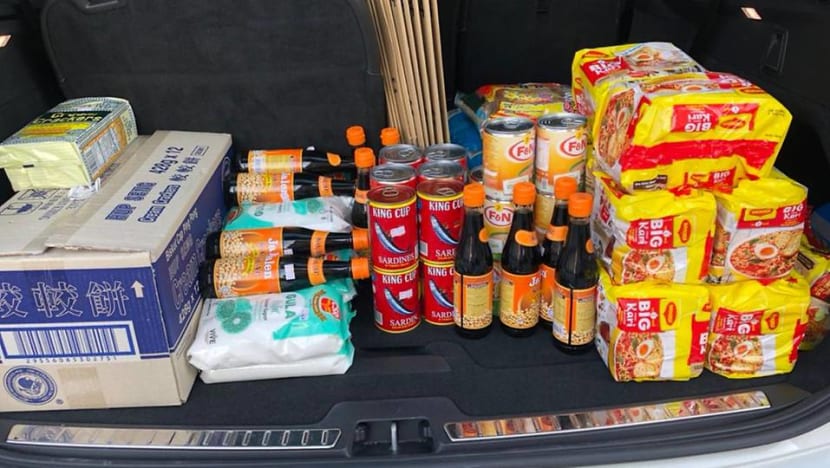
With more aid requests and fewer sacrifices to go round, some Muslims like Nadia decided to improvise their Aidiladha rituals by contributing their time and money elsewhere.
She said her parents and siblings also planned to drop off COVID-19 care kits to needy people in their respective neighbourhoods, after having a breakfast together virtually via Facetime on Aidiladha, which falls on Jul 20 this year.
Some Muslims also decided to contribute to sacrifices overseas, after learning of the dire needs there.
READ: More than 11,000 new COVID-19 cases in Malaysia for second consecutive day
MORE AID REQUESTS
Al-Ma’muriah Mosque in Kampung Sungai Kayu, Petaling Jaya, is one of some 20 mosques in Selangor that will still carry out the traditional animal sacrifice in their compounds this year, according to its imam Muhammad Nizam Abd Samad.
A constant stream of kampung residents was seen stopping by the mosque to enquire about aid or to hand in their application forms for such last Thursday (Jul 8).
“This year, it’s fair to say the number of people applying for aid from our mosque has doubled,” he said, adding that the number of aid recipients has jumped to about 200 households.
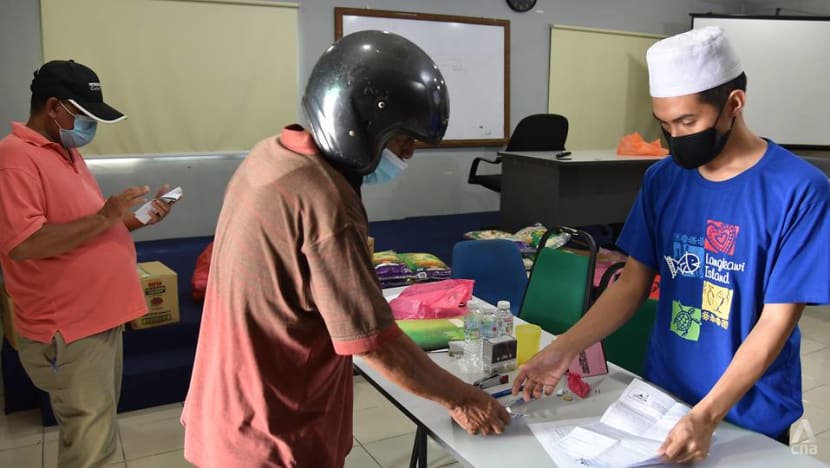
“These will be the same people we’re donating the meat from the sacrificed animals to this year, but we’re operating with a lot of tight restrictions because the caseload in the Klang Valley is so high,” Muhammad Nizam, 34, said.
The mosque is limited to a maximum of 20 people to sacrifice the animals and prepare the meat for distribution, so it could only handle three cows and 10 goats per day this year, the imam said, adding that it would take two days to complete the sacrifices.
“A lot who come to us are Indonesian labourers who are jobless at the moment, because they are employed by construction contractors who can't work either because of the lockdown," Muhammad Nizam said.
READ: 'I hope it makes them a little happier' - Durian seller offers free meals to Malaysians, taxi drivers in Singapore
The smaller scale of sacrifice rituals also meant that business is quieter for livestock importers like Ahmad Sabri Md Saad.
“We’re importing all the year round for both normal daily meat consumption and the korban season, and before COVID-19, we used to do 2,000 to 3,000 cows a year and about double for goats and sheep," the 53-year-old said.
“This year, korban is very slow, partly because demand has fallen due to the tight SOPs and limits on the number of animals which can be sacrificed by a mosque," he added.
At the same time, supply was also tight due to an outbreak of lumpy skin disease caused by a pox virus in Thailand, said Ahmad Sabri.
Although the disease is not transmissible to humans, the Malaysian government has decided to suspend imports, and cattle with nodular lesions are required to be slaughtered at the Department of Veterinary Services’ slaughterhouses.
“Meanwhile, cattle which have already been imported from Thailand are under quarantine right now, so we can't ship them to other states for korban also,” Ahmad Sabri said.
CONTRIBUTE TIME AND EFFORT
Norazlin Abdul Manap Khalid, 33, is one of those who have planned a different way to commemorate Aidiladha this year.
On the day of Aidiladha, she would be volunteering at a COVID-19 assessment centre.
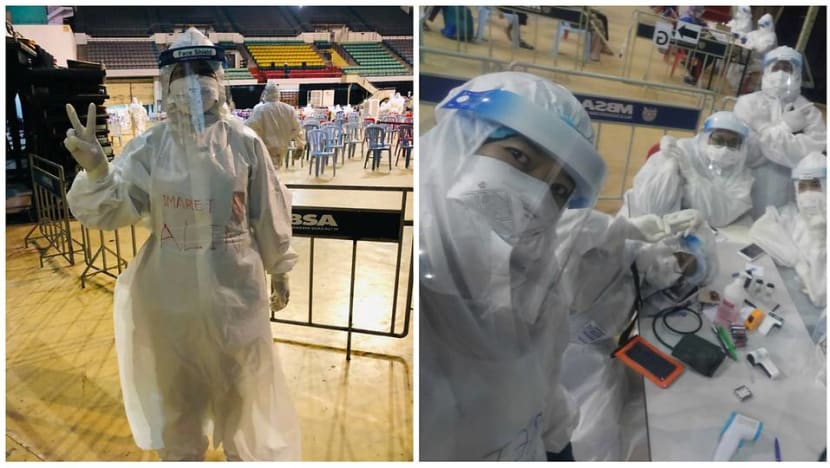
“Most people will probably take off as it’s a public holiday, but I want to help out on that day, as a way of donating my time and effort,” she said.
Norazlin has been volunteering since mid-May on her off days, helping with crowd control as she has no medical background.
"I'm worried about contracting COVID-19, but I take precautions like properly donning my PPE (personal protective equipment), sanitising myself before getting into my car and showering right away once I reach home," she said.
In the past, her father would help out at the mosque from early morning on Aidiladha and then bring back the family's sponsored meat portion. This year, they have donated money for sacrifices overseas.
“Economically, we’re affected too, but we can still survive and we try to help out where we can,” she said.
READ: Malaysia government contract doctors frustrated over lack of job security, benefits as COVID-19 drags on
Noting that contributing money to korban activities overseas has been a common practice among Muslims, Norazlin said people still prefer to donate to places where sacrifices are taking place.
“Most of the money we donated is going to Saudi Arabia, also because it’s the holy Haj month, so it’s good to send our money there and fund our korban there,” she said.
Similarly, Iskandar Azaman, 41, said his wife has donated to korban events in Cambodia this year.
“Mostly because there aren’t as many options in Malaysia, and Cambodian Muslims need it more.”
“I have a close friend whose family has a school in Cambodia, so we know the situation there is more urgent, and decided to donate there.
“Lots of Muslims and Malaysians ‘korban’ in Cambodia,” the forensic expert said, adding that they would also cook and pack food for neighbours who usually attend their open house on Aidiladha.
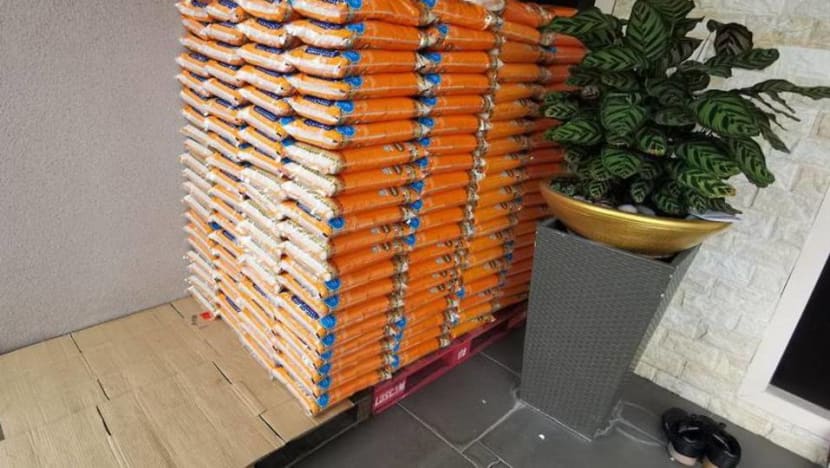
Nadia, whose family has planned on distributing food packages on the day of Aidiladha, said they would not be selective in terms of the creeds or ethnicities of the recipients.
“It doesn’t matter if you’re Muslim, Hindu, Buddhist or whatever, we give in the hope that it will ease someone’s suffering, if not much, at least a little.”
“And by doing this together with my whole family, even if we’re apart from each other, I can feel their presence,” she said.
Read this story in Bahasa Melayu here.
BOOKMARK THIS: Our comprehensive coverage of the COVID-19 pandemic and its developments
Download our app or subscribe to our Telegram channel for the latest updates on the coronavirus outbreak: https://cna.asia/telegram












